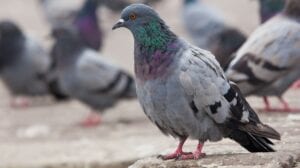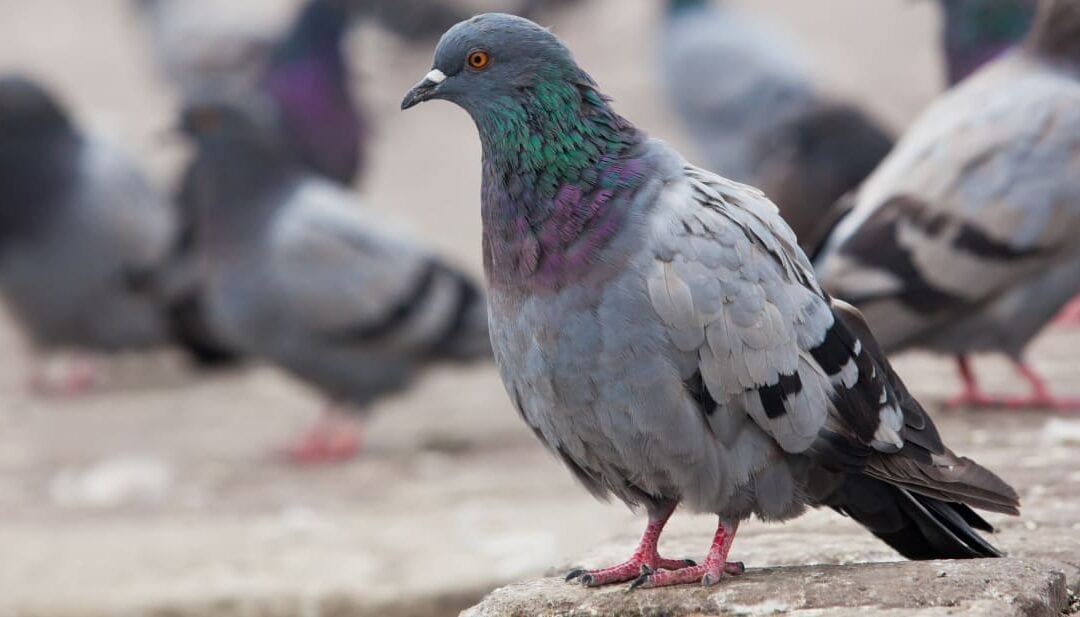
by Pigeon Patrol | May 2, 2023 | history of pigeons, MBCA, pet bird, Pigeon Control, Pigeon Droppings, Pigeon Patrol's Services, Pigeon Predators
Kristyn Wong-Tam doesn’t hate pigeons.
But the councillor for Toronto Centre (Ward 13) has watched constituents fight pigeons for long enough, having fielded numerous complaints over the years from people and businesses forced to buy netting to keep the birds off balconies and window ledges and anything else that can act as a perch or nesting area.
“I do think we’ve reached a tipping point in Toronto,” says the councillor, who has often spotted people feeding pigeons random food in places where people and birds congregate, like Yonge-Dundas Square.
“I’ve seen people take out a loaf of bread and throw it on Bay Street.”
Wong-Tam believes that people are acting out of genuine concern for the birds, or to ensure food doesn’t go to waste. In fact, the discarded food also attracts vermin.
When Toronto council meets this week, Wong-Tam intends to introduce a member’s motion asking that the city examine the possibility of banning feeding pigeons anywhere in the city, in public and private spaces, in order to control the pigeon population.
Currently, the city of Toronto parks bylaw prohibits feeding wildlife or depositing food for wildlife in parks, but there is no such restriction elsewhere. As a result, pigeons crowd public spaces like sidewalks, plazas, boulevards and laneways where they can find discarded food and are also fed by people.
In fact, the lack of enforcement of the bylaw in parks has even rendered some green space unusable, according to Wong-Tam’s motion.
Only two tickets for feeding wildlife in parks were issued in 2020, according to the city.
The lack of control means business is booming for David Szabo, owner of Pigeon Tom, a firm specializing in bird control. Cleaning up after pigeons, and protecting balconies and buildings from pigeons is most of his business.
Nesting pigeons love concrete balconies, and they can quickly coat patio furniture, barbecues and stored bicycles in droppings that are difficult and sometimes impossible to clean effectively.
“It literally drives people crazy because they’re so loud,” says Szabo. “They’re always cooing, especially early in the morning at 6 or 7 a.m.”
Because the birds return to nest in the place where they were born, the situation can quickly spiral out of control, Szabo says. Then there are the people who never go out on their balconies at all.
“In some cases, the person just never went out on the balcony for like five or six years, and it’s so bad you can’t open the door.”
Pigeon experts agree that feeding pigeons people-food, or large quantities of birdseed, isn’t good for the birds or the people who have to live with them. It leads to overpopulation and a buildup of unsightly and corrosive droppings, among other problems.
“People think that they’re feeding the birds, oftentimes they’re feeding the rats,” says pigeon expert Elizabeth Carlen, a post-doctoral research fellow at the Living Earth Collaborative at Washington University in St. Louis.
Carlen has studied pigeon populations from Boston to Washington, D.C.
“I have seen many places where people have dropped birdseed, thinking they are feeding the birds, and right behind it will be a rat burrow.”
Cities, with their proliferation of concrete balconies and windowsills and ledges, are just like the rock cliffs pigeons populate in nature, says Andrew Blechman, author of “Pigeons: The Fascinating Saga of the World’s Most Revered and Reviled Bird.”
“They like our cities because pigeons don’t do trees, they do cliffs. It’s a concrete jungle and that’s how they like it.”
Pigeons and people have enjoyed a symbiotic relationship since at least Mesopotamia, says Blechman. Pigeons have been a source of food, kept as pets, flown for sport and trained to assist in warfare — including a Canadian pigeon named Beachcomber, who won a medal for flying across the foggy English Channel to Britain to deliver news of the landing at Dieppe.
Colin Jerolmack, author of “The Global Pigeon,” has observed people feeding pigeons in parks for hours at a time.
“Many socially marginalized people — people who are homeless or elderly — fed the pigeons and out of it developed pet-like relationships that were very meaningful to them,” says Jerolmack.
“It may sound crazy, but pigeons do have different personalities and they would recognize the feeders and sit on their shoulders and wrists and show them affection.”
Also kids love pigeons and it is often their first close encounter with wildlife if they live in the city, Jerolmack says.
Jerolmack, Carlen and Blechman agree the solution is not to ban feeding pigeons, mostly because a ban is unlikely to work.
Blechman says that the people most likely to be feeding pigeons the most know it’s wrong, but they can’t help themselves. They’re obsessed. They’re up at 4 a.m., dumping an entire bag of birdfeed for the pigeons. They’re hard to catch.
“If you’re going to feed a pigeon, feed responsibly — a teaspoon or a tablespoon of bird-feed, that’s it,” says Blechman, who favours public education campaigns.
Keeping a pigeon as a pet is allowed in Toronto, as long as it is kept exclusively on private property, but Wong-Tam says people feeding wild pigeons from their homes can also create a problem for the neighbourhood if it draws flocks of birds.
The city receives about 60 complaints a year related to pigeons, including pet pigeons, wild pigeons and pigeon droppings, under various bylaws, according to data supplied by the city.
Other forms of population control are more likely to work better than a poorly enforced ban, say experts.
Blechman says some cities control their pigeon populations by building coops on top of buildings, feeding the birds where they roost. The eggs laid there are not allowed to hatch.
He finds it hard not to respect pigeons. They are gentle, monogamous and they raise their offspring together. They like humans. They can fly 900 kilometres at a stretch, at an average speed of 95 km/h, from a place they’ve never been to their home, like laser missiles.
“Pigeons have been beloved all through human history. It’s only the last 60 years that people have been nagging on them,” Blechman says.
“Cities can be awfully concrete, it’s awfully nice to see something that we’re not in control of, that’s a piece of nature, like a squirrel, like a bird, like a pigeon,” Blechman adds. “They animate our lives and that’s why people like to sit on a bench and feed them a piece of crust.”
Source
Pigeon Patrol Products & Services is the leading manufacturer and distributor or bird deterrent (control) products in Canada. Pigeon Patrol products have solved pest bird problems in industrial, commercial, and residential settings since 2000, by using safe and humane bird
deterrents with only bird and animal friendly solutions. At Pigeon Patrol, we manufacture and offer a variety of bird deterrents, ranging from Ultra-flex Bird Spikes with UV protection, Bird Netting, 4-S Bird Gel and the best Ultrasonic and audible sound devices on the market today.
Voted Best Canadian wholesaler for Bird Deterrent products ten years in a row.
Contact us at 1 877-4-NO-BIRD,(604) 585-9279 or visit our website at www.pigeonpatrol.ca
Pigeon/Pigeon Patrol / Pigeons Roosing / Vancouver Pigeon Control / Bird Spikes / Bird Control / Bird Deterrent / PIgeon Deterrent / Surrey Pigeon Control / Pest / Seagull deterrent / Vancouver Pigeon Blog / Birds Inside Home / Pigeons in the cities / Ice Pigeons / What to do about pigeons / sparrows, Damage by Sparrows, How to Keep Raccoons Away, Why Are Raccoons Considered Pests / De-fence / Pigeon Nesting / Bird Droppings / Pigeon Dropping / woodpecker control / Professional Bird Control Company / Keep The Birds Away / Birds/rats/seagull/pigeon/woodpecker/dove/sparrow/pidgeon control/pidgeon problem/pidgeon control/flying rats/pigeon problems/ bird netting/bird gel/bird spray/bird nails/bird guard
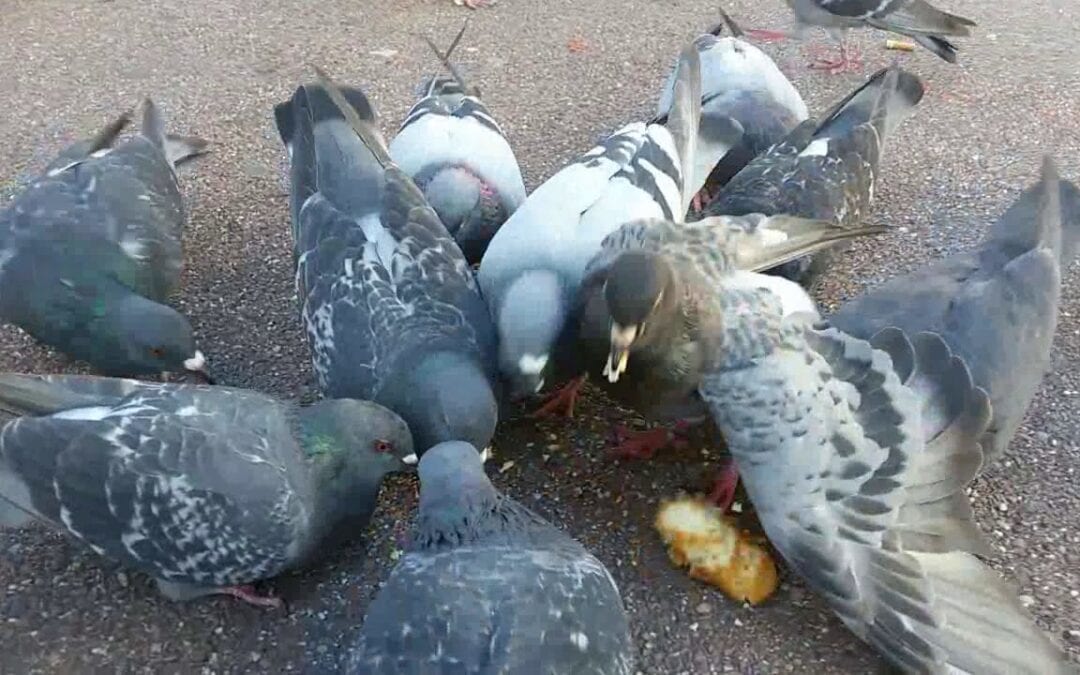
by Pigeon Patrol | Apr 26, 2023 | history of pigeons, MBCA, pet bird, Pigeon Control, Pigeon Droppings, Pigeon Patrol's Services, Pigeon Predators
Pigeons like to land, roost, nest, and make a mess of your roof and they’re not easy to get rid of. Persistence, bird deterrents, and bird exclusion is the key.
Get rid of pigeons on the roof by removing food and water
Remove all food and water sources and never feed the pigeons! In addition, don’t let your neighbors feed the pigeons. The pigeons can eat at your neighbors and nest on your roof!
Pigeons mainly like to eat seeds and grains such as oats, wheat, corn, cereal, sorghum, rice, beans, barley, millet, peas, and sunflower. They also like to eat food scraps left behind by people, including bread crumbs and popcorn. Birdseed is their favorite because it contains a variety of seeds and grains.
When grains or seeds aren’t available pigeons will eat fruit, greens, and occasionally insects, earthworms, and snails. They especially like apples, grapes, berries, lettuce, spinach, and sprouted seeds.
Pigeons need a constant water source. If water isn’t readily available they will leave to find a more suitable place to live. They can find water in birdbaths, gutters, pools, decorative water fountains, puddles, ponds, streams, and even leaves after a rain storm.
Easy to use deterrents to get rid of pigeons on the roof
Aluminum foil, bird deterrent tape, shiny Mylar balloons, wind propelled shiny spinning objects, and plastic decoy scare owls are scary objects to pigeons. Place scary objects on the roof, under the eves, or on the patio. Pigeons don’t like or feel comfortable with scary objects next to their nesting area. They would rather live in a more peaceful environment. One thing to remember, when installing scary objects, is to move them around on a regular basis. Objects that stay in one position don’t scare pigeons.
Wind chimes may deter pigeons. You can give it a try. Pigeons have sensitive hearing and the noise from wind chimes can actually hurt their ears. Pigeons don’t particularly like to nest where loud noises come and go.
Sticky bird gel can also deter pigeons. Apply the sticky gel to your roof where the pigeons are landing and roosting. The gel will make the area uncomfortable for the pigeons to roost.
Metal bird spikes to get rid of pigeons on the roof
Metal anti bird perching spikes can be effective in the right circumstance. They can work pretty well depending on the location you put them. Install them on rooftop edges, ledges, chimneys, and anywhere you see the pigeons land, roost, or nest. Metal bird spikes are mostly maintenance free and can be a permanent solution to deter pigeons from your roof.
Metal anti-perching spikes are harder to install and are not aesthetically appealing.
Wire screens or mesh to get rid of pigeons on the roof
Exclusion is the best solution to pigeon problems in alcoves, around chimneys, under solar panels, on vents, and many other places on the roof. Exclusion with wire bird screen and mesh do offer a permanent solution to pigeon nesting problems.
Solar panels are generally raised 5-12 inches above shingled or tiled roofs, thus creating a void between the panel and the roof. Pigeons can easily go underneath the panel to nest, poop, and make a noticeable and destructive mess. Most, if not all, rooftops that have solar panels need to have pigeons excluded from getting under the solar panels.
Installing wire bird screens or mesh can be difficult and hazardous. It requires being on the roof with tools, a lot of bending over (which is physically demanding), cutting the wire to the proper dimensions, and stapling or screwing on the wire. It is not advised for a home or business owner to install wire screens or mesh because it isn’t safe. You can fall off the roof and get seriously injured or die. To use this method, please hire a professional bird control company.

Bird netting to get rid of pigeons on the roof
If your roof is large and flat, bird netting is an excellent method to use to keep pigeons off your roof. It physically blocks the birds from the roof. If the birds can’t get on the roof, they can’t roost or nest. Bird netting is an exclusion method primarily used for large commercial bird and pigeon control.
A professional bird control operator should install bird netting. If not installed correctly the pigeons can still land on the area and get trapped, as well as other birds. This is cruel. Please hire a professional bird control company for bird netting. It will cost money but it is the safest and most humane way to have bird netting installed.
Remove bird nesting materials and droppings
It is important to remove all pigeon nesting and feces prior to excluding pigeons. Nesting materials and droppings left on the roof will continue to cause damage.
If the roof has a pitch, using a power washer is generally the best way to get rid of pigeon waste. Put a tarp on the ground next to the roof to catch the debris as it is rinsed off the roof. It will be much easier to clean up the pigeon feces on the ground if it is contained on a tarp. Wear a mask to prevent inhaling fumes from pigeon feces and wet the feces down before rinsing off. Histoplasmosis is zoonotic disease that can be found in pigeon feces. Zoonotic diseases are caused by harmful germs like viruses, bacteria, parasites, and fungi that are spread between animals and people.
If the roof is flat, you will have to wet the roof down (to prevent spreading contaminants and disease through the air), then rake and sweep up the pigeon waste prior to rinsing. Again, wear a mask to prevent inhaling fumes from pigeon feces.
Please be careful or better yet, call a professional. Using a power washer on the roof can be slippery and dangerous. Inhaling noxious pigeon feces can cause disease – it is a biohazard.
Importance of discouraging pigeons from nesting on your roof
Pigeons spread disease. There are over 60 diseases birds and their droppings can carry. Some of the diseases from pigeon droppings include salmonella, toxoplasmosis, cryptococcosis, St Louis encephalitis, E.coli, and more. In addition, fungus can grow in pigeon droppings which can cause histoplasmosis. Histoplasmosis is a respiratory disease that may be fatal. Pigeons are also carriers of pests including fleas, mites, ticks, and lice as well as West Nile virus. All of these diseases can pose a serious threat to human health.
Property damage is a big concern with pigeon nesting and droppings. Nests can clog gutters, ventilation pipes, chimneys, and damage electrical equipment. Damaged electrical wires from pigeon nests can even lead to fires. Pigeon droppings are very acidic. The droppings can actually eat away at the roof structure and cause roof leakage.
Pigeon droppings are unsightly. Nobody likes to see or walk on pigeon droppings.
People can slip and fall where pigeon droppings accumulate. When pigeon feces are fresh or rained on it is slippery.
Call a professional
Installing wire bird spikes, wire screens, wire mesh, or bird netting is difficult and hazardous. People can, and do, fall off roofs. People who fall off roofs get seriously injured and even die. It is best to call a professional bird control company when using these methods. Companies that specialize in removing and excluding bird pests (like pigeons) have the know how and safety equipment to get rid of pigeons in a safe and efficient manner from rooftops, alcoves, solar panels, chimneys, window sills, and other areas.
Source
Pigeon Patrol Products & Services is the leading manufacturer and distributor or bird deterrent (control) products in Canada. Pigeon Patrol products have solved pest bird problems in industrial, commercial, and residential settings since 2000, by using safe and humane bird
deterrents with only bird and animal friendly solutions. At Pigeon Patrol, we manufacture and offer a variety of bird deterrents, ranging from Ultra-flex Bird Spikes with UV protection, Bird Netting, 4-S Bird Gel and the best Ultrasonic and audible sound devices on the market today.
Voted Best Canadian wholesaler for Bird Deterrent products ten years in a row.
Contact us at 1 877-4-NO-BIRD,(604) 585-9279 or visit our website at www.pigeonpatrol.ca
Pigeon/Pigeon Patrol / Pigeons Roosing / Vancouver Pigeon Control / Bird Spikes / Bird Control / Bird Deterrent / PIgeon Deterrent / Surrey Pigeon Control / Pest / Seagull deterrent / Vancouver Pigeon Blog / Birds Inside Home / Pigeons in the cities / Ice Pigeons / What to do about pigeons / sparrows, Damage by Sparrows, How to Keep Raccoons Away, Why Are Raccoons Considered Pests / De-fence / Pigeon Nesting / Bird Droppings / Pigeon Dropping / woodpecker control / Professional Bird Control Company / Keep The Birds Away / Birds/rats/seagull/pigeon/woodpecker/dove/sparrow/pidgeon control/pidgeon problem/pidgeon control/flying rats/pigeon problems/ bird netting/bird gel/bird spray/bird nails/bird guard
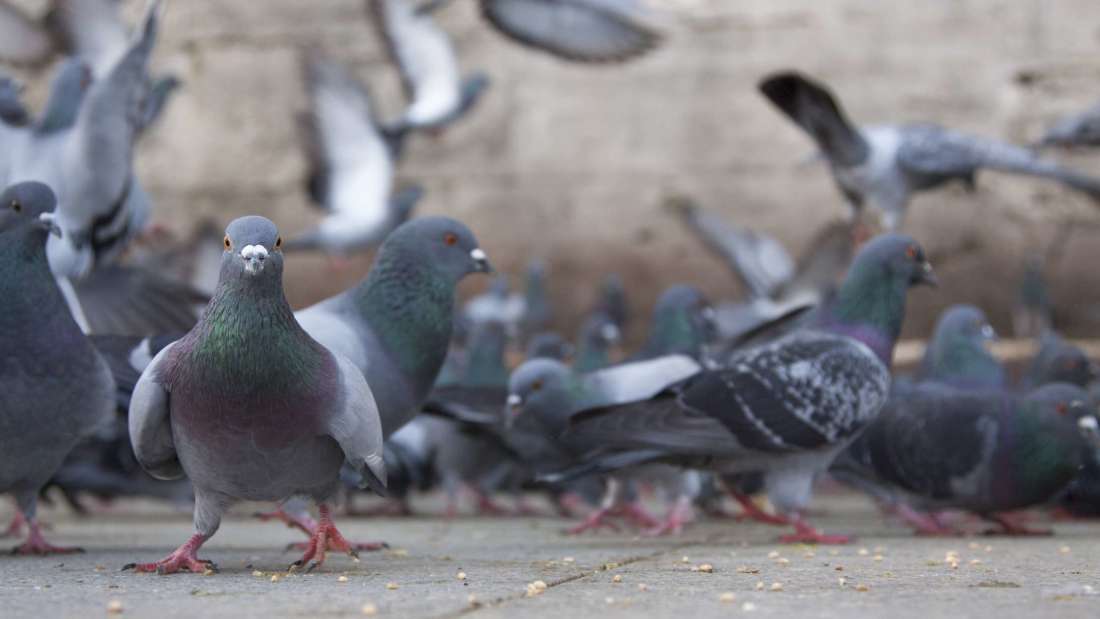
by Pigeon Patrol | Apr 18, 2023 | history of pigeons, MBCA, pet bird, Pigeon Control, Pigeon Droppings, Pigeon Patrol's Services, Pigeon Predators
When travelling in groups, animals frequently have to make decisions on the direction of travel. These decisions can be based on consensus, when all individuals take part in the decision (i.e. democratic decision; social information), or leadership, when one member or a minority of members make the decision (i.e. despotic decision; personal information). Here we investigated whether decision-making on the navigation of small flocks is based on democratic or despotic decisions. Using individual and flock releases as the experimental approach, we compared the homing performances of homing pigeons that fly singly and in groups of three. Our findings show that although small groups were either governed (i.e. when individuals in the flock had age differences) or not (i.e. when individuals in the flock had the same age) by leaders, with concern to decision-making they were all ruled by democratic decisions. Moreover, the individual homing performances were not associated with leadership. Because true leaders did not assume right away the front position in the flock, we suggest that as in human groups, starting from a central position is more effective as it allows leaders to not only transmit their own information but also to average the tendencies of the other group members. Together, the results highlight the importance of democratic decisions in group decision-making.
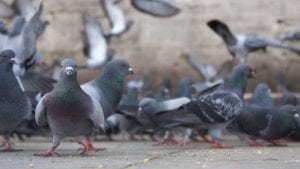
Source
Pigeon Patrol Products & Services is the leading manufacturer and distributor or bird deterrent (control) products in Canada. Pigeon Patrol products have solved pest bird problems in industrial, commercial, and residential settings since 2000, by using safe and humane bird
deterrents with only bird and animal friendly solutions. At Pigeon Patrol, we manufacture and offer a variety of bird deterrents, ranging from Ultra-flex Bird Spikes with UV protection, Bird Netting, 4-S Bird Gel and the best Ultrasonic and audible sound devices on the market today.
Voted Best Canadian wholesaler for Bird Deterrent products ten years in a row.
Contact us at 1 877-4-NO-BIRD,(604) 585-9279 or visit our website at www.pigeonpatrol.ca
Pigeon/Pigeon Patrol / Pigeons Roosing / Vancouver Pigeon Control / Bird Spikes / Bird Control / Bird Deterrent / PIgeon Deterrent / Surrey Pigeon Control / Pest / Seagull deterrent / Vancouver Pigeon Blog / Birds Inside Home / Pigeons in the cities / Ice Pigeons / What to do about pigeons / sparrows, Damage by Sparrows, How to Keep Raccoons Away, Why Are Raccoons Considered Pests / De-fence / Pigeon Nesting / Bird Droppings / Pigeon Dropping / woodpecker control / Professional Bird Control Company / Keep The Birds Away / Birds/rats/seagull/pigeon/woodpecker/dove/sparrow/pidgeon control/pidgeon problem/pidgeon control/flying rats/pigeon problems/ bird netting/bird gel/bird spray/bird nails/bird guard
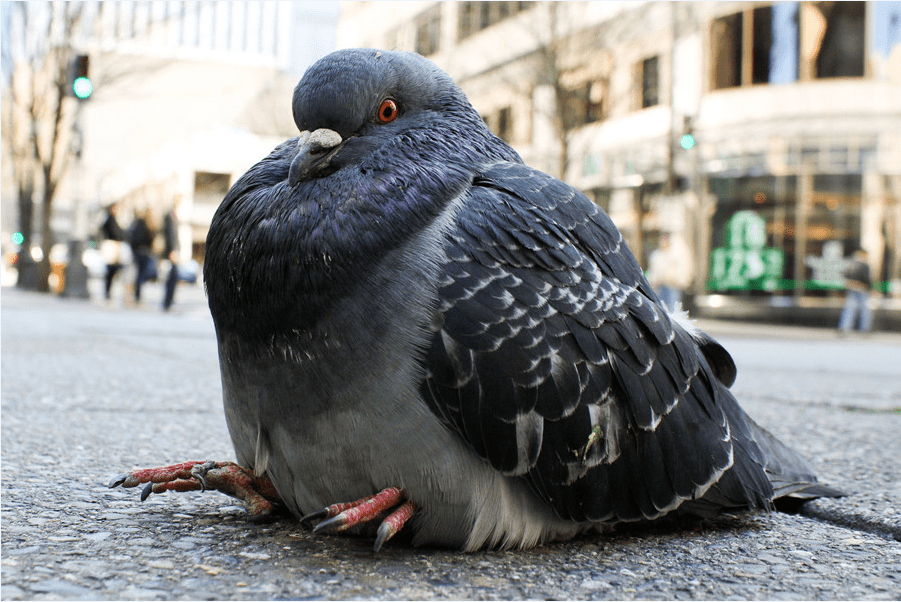
by Pigeon Patrol | Mar 23, 2023 | Columbidae, Doves, history of pigeons, MBCA, pet bird, Pigeon Control, Pigeon Droppings, Pigeon Patrol's Services
A recent first detection of pigeon aviadenovirus-1 and pigeon circovirus co-infection associated with Young Pigeon Disease Syndrome (YPDS) in a pigeon flock in Turkey, prompted a study focused on documenting the distribution of Pigeon aviadenovirus (PiAdV-1 and PiAdV-2), Pigeon circovirus (PiCV), Columbid alphaherpesvirus 1 (pigeon herpesvirus (PiHV)) and Fowl aviadenovirus (FAdV) in the country. These viruses were selected as they are associated with severe disease in pigeons across the world. A total of 192 cloacal swabs were collected from young (<1 year old) pigeons from 16 different private pigeon flocks across Turkey, between 2018 and 2021 as part of routine diagnostic sampling. PiCV genetic material was the most frequently detected 4/16 (25%), PiAdV-1 and CoHV-1 DNA were both found in one flock each, while neither PiAdV-2 and FAdV were detected in any of the studied pigeon flocks. PiCV and PiHV genetic material were both detected in the same pigeon flock’s cloacal samples as a co-infection with the identification of PiHV being a first in Turkey.
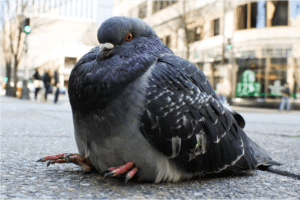
Source
Pigeon Patrol Products & Services is the leading manufacturer and distributor or bird deterrent (control) products in Canada. Pigeon Patrol products have solved pest bird problems in industrial, commercial, and residential settings since 2000, by using safe and humane bird
deterrents with only bird and animal friendly solutions. At Pigeon Patrol, we manufacture and offer a variety of bird deterrents, ranging from Ultra-flex Bird Spikes with UV protection, Bird Netting, 4-S Bird Gel and the best Ultrasonic and audible sound devices on the market today.
Voted Best Canadian wholesaler for Bird Deterrent products ten years in a row.
Contact us at 1 877-4-NO-BIRD,(604) 585-9279 or visit our website at www.pigeonpatrol.ca
Pigeon/Pigeon Patrol / Pigeons Roosing / Vancouver Pigeon Control / Bird Spikes / Bird Control / Bird Deterrent / PIgeon Deterrent / Surrey Pigeon Control / Pest / Seagull deterrent / Vancouver Pigeon Blog / Birds Inside Home / Pigeons in the cities / Ice Pigeons / What to do about pigeons / sparrows, Damage by Sparrows, How to Keep Raccoons Away, Why Are Raccoons Considered Pests / De-fence / Pigeon Nesting / Bird Droppings / Pigeon Dropping / woodpecker control / Professional Bird Control Company / Keep The Birds Away / Birds/rats/seagull/pigeon/woodpecker/dove/sparrow/pidgeon control/pidgeon problem/pidgeon control/flying rats/pigeon problems/ bird netting/bird gel/bird spray/bird nails/bird guard
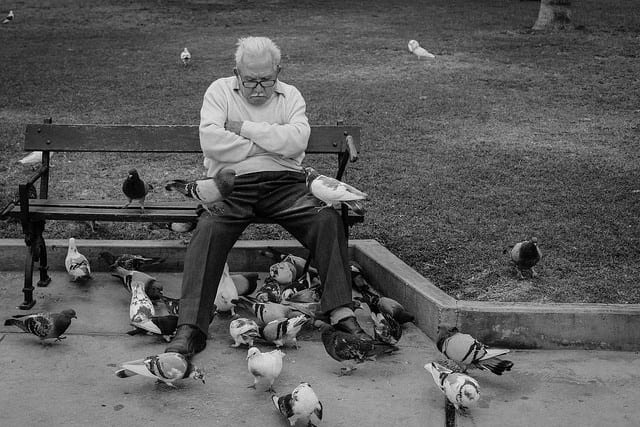
by Pigeon Patrol | Mar 23, 2023 | Columbidae, Doves, history of pigeons, MBCA, pet bird, Pigeon Control
Pigeons may seem harmless, but these pest birds cause millions of dollars in damage every year to buildings, ventilation systems, machinery, statues, roofs, and much more. Bird droppings and nesting materials left by pigeons pose physical problems and health hazards that can become very serious if not corrected quickly making prompt and effective professional bird control is often essential.
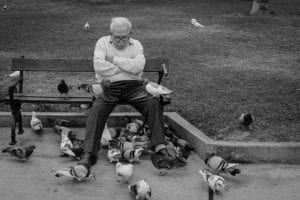
Potential Health Hazards:
There are many health risks associated with pigeons and their droppings. The bacteria, fungi, and ectoparasites that they and their droppings harbor are numerous. The four most common ways disease is passed by bird to human are: inhalation of fecal dust, food and water contaminated with bird feces, direct contact with feces, and parasitic transfer.
Pigeon droppings can expose humans to many diseases, including salmonella, Newcastle disease, candidiasis, encephalitis, orthosis, and toxoplasmosis. In addition, they can also carry cryptococcosis, and coccidiodomycosis, which cause meningitis. The droppings may also harbor growth of fungus, which causes histoplasmosis. Fleas, lice, mites, and other pests often live on these birds, hitching a ride to where ever they want to jump off. Pigeons may also attract other pests, such as rats, which feed on dead pigeons and food that well-intentioned bird lovers may scatter for them.
In addition to disease, bird droppings are known for triggering people to slip and fall, which makes it especially important to rid the birds from highly trafficked areas.
Damage Caused by Pigeons:
These are messy birds, leaving droppings everywhere they go, particularly near their roost sites. Pigeon droppings are not just gross, they are also full of uric acid which makes them extremely corrosive. The droppings are the direct cause of millions of dollars in damage to buildings and other structures. Particularly vulnerable are painted surfaces, awnings, signs, and other similar surfaces. A tragic example of the corrosiveness of pigeon droppings is the Minnesota bridge accident in 2007, which was found to be the direct result of bird droppings eating away at the metal bridge supports until they weakened.
In addition to the damage cause by their acidic droppings, pigeon nests can also cause damage. Pest birds will often build nests in gutters or on roof corners blocking essential drainage systems. Every year several warehouses experience roof damage, and even collapse, when drainage systems have been blocked and standing water rises just six inches. Bird nests can also block ventilation systems, which not only prevents exhaust of potentially harmful gases, but also has the potential to spread diseases. Fire is also a potential hazard. Nesting materials are usually flammable, consisting of twigs, straw, grasses and dried droppings. When pest birds build their nests inside electric signs or other machinery there is a great risk of fire.
Pigeons are creatures of habit and highly social. Once they have found a cozy spot the will return again and again, bringing along more of their pigeon pals. Prolific breeders, pigeons can hatch several broods a year, sometimes even laying a new clutch before the previous have even hatched. Often our buildings and structures have architectural features such as drain spouts and eaves that make perfect nesting spots for these birds. Pigeons are comfortable around humans and they’re hard to scare away or deter. Once a flock of stubborn unwanted pigeons have set up shop in/on your building, it can be stubbornly resistant to removal, often requiring the services of a pest control or animal control professional. As is true of many pests that invade our homes and businesses, the first step to controlling feral pigeons is to remove their food source.
Tips to deter pigeons:
- Don’t feed the pigeons.
- Screen drains and gutters to make your property less attractive to pigeons.
- Encourage children to pick up spilled food – and teach them NOT to feed pigeons
- Keep areas around trash bins and outdoor dining areas clean
- Eliminate water sources such as bird baths, over-watered lawns, or kiddy pools.
Source
Pigeon Patrol Products & Services is the leading manufacturer and distributor or bird deterrent (control) products in Canada. Pigeon Patrol products have solved pest bird problems in industrial, commercial, and residential settings since 2000, by using safe and humane bird
deterrents with only bird and animal friendly solutions. At Pigeon Patrol, we manufacture and offer a variety of bird deterrents, ranging from Ultra-flex Bird Spikes with UV protection, Bird Netting, 4-S Bird Gel and the best Ultrasonic and audible sound devices on the market today.
Voted Best Canadian wholesaler for Bird Deterrent products ten years in a row.
Contact us at 1 877-4-NO-BIRD,(604) 585-9279 or visit our website at www.pigeonpatrol.ca
Pigeon/Pigeon Patrol / Pigeons Roosing / Vancouver Pigeon Control / Bird Spikes / Bird Control / Bird Deterrent / PIgeon Deterrent / Surrey Pigeon Control / Pest / Seagull deterrent / Vancouver Pigeon Blog / Birds Inside Home / Pigeons in the cities / Ice Pigeons / What to do about pigeons / sparrows, Damage by Sparrows, How to Keep Raccoons Away, Why Are Raccoons Considered Pests / De-fence / Pigeon Nesting / Bird Droppings / Pigeon Dropping / woodpecker control / Professional Bird Control Company / Keep The Birds Away / Birds/rats/seagull/pigeon/woodpecker/dove/sparrow/pidgeon control/pidgeon problem/pidgeon control/flying rats/pigeon problems/ bird netting/bird gel/bird spray/bird nails/bird guard
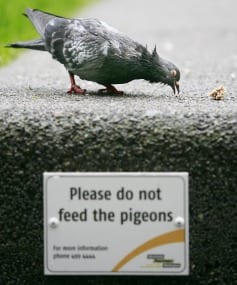
by Pigeon Patrol | Mar 6, 2023 | MBCA, pet bird, Pigeon Control, Pigeon Droppings, Pigeon Patrol's Services, Pigeon Predators
In January 2019, a child died in a Scottish hospital after developing a fungal infection caused by exposure to pigeon droppings. An elderly patient also died in the same hospital of another condition that was exacerbated by exposure to pigeon droppings. It was determined that both patients were exposed to the contaminants via the ventilation system, which was found to contain pigeon droppings. These deaths brought to the forefront a question that many people who are living with pigeon infestations have: in addition to being disruptive, are pigeons actually dangerous? Here are the facts you need to know.
Pigeon droppings contain bacteria and fungi that can cause disease.
Exposure to pigeon droppings can lead to a number of different diseases. Some of the most common infections associated with pigeons are:
· E. coli: E. coli infections are usually the result of pigeon droppings being present in water or in food that is later consumed. This infection causes nausea, abdominal cramps, fever, and vomiting.
· Histoplasmosis: This is a dangerous fungal infection that affects the lungs, or rarely, other parts of the body. It causes flu-like symptoms, including fever, shortness of breath, chest pain, fatigue, and loss of appetite. It can be fatal in severe cases.
· Cryptococcus: This is another fungal infection that affects the lungs and can spread to the brain. In its early stages, it can cause a cough, chest pain, fever, and shortness of breath. When it spreads to the lungs, it causes headaches, neck pain, changes in behavior, confusion, and sensitivity to light. It can also be fatal.
· Psittacosis: Psittacosis is a bacterial infection that causes fever, headaches, a rash, and can lead to pneumonia, if left untreated.
· Candidiasis: This fungal infection can affect multiple parts of the body, including the mouth, lungs, urogenital tract, and skin. This infection may require prolonged periods of antifungal medications to treat.
· Salmonellosis: Pigeon droppings may contain the bacteria salmonella, which can cause this infection. Typically, people are exposed to these bacteria when pigeon droppings come into contact with food or food preparation surfaces. This infection causes nausea, vomiting, and abdominal cramps.
Pigeons also carry other potential health risks.
It is not just the droppings of pigeons that are dangerous. Pigeons themselves can carry mites and fleas, which can then attach to your pets or enter your home, causing skin irritation and itchiness. They can also spread infections through bites that are dangerous to both people and pets.
Pigeons can also carry West Nile virus. Although people are unlikely to contract West Nile virus directly from pigeons, it is still important to avoid removing any dead pigeons from your property without the help of a professional for this reason.

People with weakened immune systems are most at risk.
The infections that pigeons are likely to transmit do not affect everyone at the same rate. Many healthy adults are able to fight off infections caused by exposure to bacteria and fungi from pigeon droppings. If they do become ill, then they are likely to have very mild infections.
However, although it is always possible for someone who is healthy to become very ill from these conditions, other people are more at risk. Infants and children are more likely to experience severe symptoms when they are exposed to a disease via pigeon droppings. People who are immuno-compromised, such as people with HIV or who are undergoing chemotherapy, also have a higher risk of developing severe symptoms and complications. Lastly, the elderly are prone to severe symptoms from pigeon-related diseases.
Even without exposure to a disease, some people may have allergy symptoms, including respiratory problems, rashes, and itchiness, as a result of a pigeon infestation near their home or business.
For safety reasons, only professionals should handle pigeon control.
If you have a pigeon infestation, it’s important to deal with the issue as soon as possible. However, trying to get rid of pigeons and clean up their droppings on your own is not safe. Pigeon control professionals are trained in safe management techniques and have the proper equipment required to clean up after a pigeon infestation safely.
One of the biggest risks of cleaning up pigeon droppings on your own is that you could release dust into the air that contains bacteria and fungi that cause infection. Not only would you be at risk from inhaling the bacteria and fungi yourself, but you could also inadvertently introduce the contaminants into the HVAC system in your home, allowing them to spread into your indoor air and putting your family at risk.
Source
Pigeon Patrol Products & Services is the leading manufacturer and distributor or bird deterrent (control) products in Canada. Pigeon Patrol products have solved pest bird problems in industrial, commercial, and residential settings since 2000, by using safe and humane bird
deterrents with only bird and animal friendly solutions. At Pigeon Patrol, we manufacture and offer a variety of bird deterrents, ranging from Ultra-flex Bird Spikes with UV protection, Bird Netting, 4-S Bird Gel and the best Ultrasonic and audible sound devices on the market today.
Voted Best Canadian wholesaler for Bird Deterrent products ten years in a row.
Contact us at 1 877-4-NO-BIRD,(604) 585-9279 or visit our website at www.pigeonpatrol.ca
Pigeon/Pigeon Patrol / Pigeons Roosing / Vancouver Pigeon Control / Bird Spikes / Bird Control / Bird Deterrent / PIgeon Deterrent / Surrey Pigeon Control / Pest / Seagull deterrent / Vancouver Pigeon Blog / Birds Inside Home / Pigeons in the cities / Ice Pigeons / What to do about pigeons / sparrows, Damage by Sparrows, How to Keep Raccoons Away, Why Are Raccoons Considered Pests / De-fence / Pigeon Nesting / Bird Droppings / Pigeon Dropping / woodpecker control / Professional Bird Control Company / Keep The Birds Away / Birds/rats/seagull/pigeon/woodpecker/dove/sparrow/pidgeon control/pidgeon problem/pidgeon control/flying rats/pigeon problems/ bird netting/bird gel/bird spray/bird nails/bird guard


